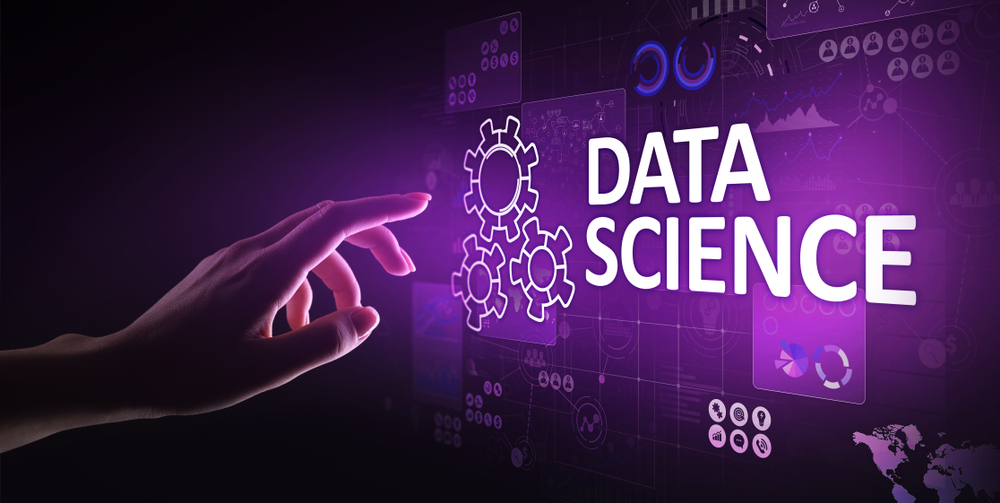Data Science: The Backbone of Modern Business Decision-Making
Introduction
In today’s digital-first world, data is more than just numbers—it’s a powerful asset that drives decision-making across industries. From predicting customer behavior to optimizing business operations, data science has become the backbone of modern enterprises. Companies that leverage data science effectively gain a competitive advantage, improve efficiency, and enhance customer experiences.
As the global volume of data continues to grow exponentially, businesses must harness the power of data science to extract actionable insights. This article explores the role of data science in modern business decision-making, its key applications, tools, challenges, and best practices for implementation.
What is Data Science and Why Does It Matter?
Defining Data Science
Data science is an interdisciplinary field that combines statistics, machine learning, data analytics, and artificial intelligence (AI) to analyze and interpret complex datasets. It enables businesses to:
✅ Make data-driven decisions instead of relying on intuition.
✅ Identify hidden patterns and trends in vast datasets.
✅ Automate processes to improve efficiency and accuracy.
✅ Enhance predictive modeling for better forecasting.
Why Data Science is Crucial for Businesses
The ability to process and analyze data has become a game-changer for organizations. Companies that integrate data science into their decision-making processes can:
🔹 Increase profitability by identifying cost-saving opportunities.
🔹 Enhance customer experience with personalized recommendations.
🔹 Improve operational efficiency by optimizing logistics and supply chains.
🔹 Mitigate risks through predictive analytics and fraud detection.
Whether it’s small businesses leveraging customer insights or large enterprises automating business processes, data science is at the heart of modern decision-making.

Key Applications of Data Science in Business Decision-Making
Data science is revolutionizing multiple business functions, from marketing and sales to finance and operations. Let’s explore its most impactful applications:
1. Predictive Analytics for Business Forecasting
Predictive analytics uses historical data, machine learning, and AI algorithms to forecast future trends. Businesses use this for:
✅ Sales Forecasting: Predicting future sales based on past data.
✅ Inventory Management: Optimizing stock levels to prevent overstocking or shortages.
✅ Customer Behavior Prediction: Anticipating purchasing habits and personalizing marketing efforts.
🔹 Example: Amazon uses predictive analytics to recommend products based on a customer’s browsing and purchase history, increasing sales conversions.
2. Customer Segmentation and Personalization
Understanding customer preferences is key to delivering personalized experiences and increasing engagement.
✅ Customer Segmentation: Businesses categorize customers based on demographics, purchasing behavior, and interests.
✅ Personalized Marketing: AI-powered algorithms suggest personalized product recommendations, improving conversion rates.
🔹 Example: Netflix leverages data science to analyze user watch history and recommend content, keeping viewers engaged.
3. Fraud Detection and Risk Management
In industries like banking, insurance, and e-commerce, fraud prevention is a top priority. Data science enhances fraud detection by:
✅ Detecting anomalies in transaction patterns.
✅ Using AI to flag suspicious activities in real-time.
✅ Identifying cybersecurity threats before they cause damage.
🔹 Example: PayPal uses machine learning algorithms to detect fraudulent transactions, reducing financial losses.
4. Optimizing Business Operations and Supply Chains
Data science improves operational efficiency by analyzing supply chain data to:
✅ Predict demand fluctuations to optimize stock levels.
✅ Reduce transportation costs by optimizing delivery routes.
✅ Improve production planning to minimize delays.
🔹 Example: Walmart uses real-time data analytics to optimize inventory management, ensuring shelves remain stocked with high-demand products.

5. HR Analytics: Data-Driven Talent Management
Human Resources (HR) teams use data science to:
✅ Analyze employee performance and productivity.
✅ Predict employee attrition and improve retention strategies.
✅ Enhance hiring decisions using AI-driven resume screening tools.
🔹 Example: Companies like Google use data-driven hiring to match candidates with the best job roles based on skill analysis.
Top Data Science Tools for Business Decision-Making
Businesses use a variety of tools to process, analyze, and visualize data efficiently. Some of the most powerful data science tools include:
🔹 Python & R – Programming languages for data analysis and machine learning.
🔹 Tableau & Power BI – Data visualization tools for creating interactive dashboards.
🔹 Google Analytics – Tracks website performance and user behavior.
🔹 Apache Hadoop & Spark – Big data frameworks for handling large datasets.
🔹 TensorFlow & Scikit-learn – Machine learning libraries for AI-driven insights.
Choosing the right tools depends on the complexity of data, business needs, and level of analytics required.
Challenges of Implementing Data Science in Business
Despite its advantages, businesses often face challenges in adopting data science. Some key obstacles include:
1. Data Quality and Management Issues
Many organizations struggle with inconsistent, incomplete, or inaccurate data, which can lead to misleading insights.
✅ Solution: Implement data governance policies and regularly clean datasets.
2. Shortage of Skilled Data Professionals
Data scientists, analysts, and engineers are in high demand, making hiring challenging.
✅ Solution: Invest in employee upskilling or outsource data science services.
3. High Implementation Costs
Building a data science infrastructure requires investment in tools, talent, and computing power.
✅ Solution: Start small with cloud-based AI services like AWS, Google Cloud, or Microsoft Azure.
4. Data Privacy and Security Concerns
Handling sensitive data requires compliance with regulations like GDPR, CCPA, and HIPAA.
✅ Solution: Strengthen cybersecurity measures and enforce strict data access policies.
Overcoming these challenges requires a strategic approach, ensuring businesses can leverage data science effectively.
Best Practices for Implementing Data Science in Business
To maximize the impact of data science, businesses should follow these best practices:
1. Define Clear Business Objectives
Before adopting data science, companies should identify specific goals like improving customer experience, reducing operational costs, or enhancing risk management.
2. Build a Data-Driven Culture
Encouraging employees to embrace data-driven decision-making ensures successful adoption. Companies should:
✅ Provide training on data analytics tools.
✅ Foster collaboration between data scientists and business teams.
3. Ensure Scalable Data Infrastructure
A scalable infrastructure ensures businesses can process and analyze large datasets efficiently. Cloud-based platforms like Google Cloud, AWS, and Azure offer flexible solutions.
4. Monitor and Optimize Data Science Models
AI and machine learning models must be continuously monitored and refined to maintain accuracy. Regular performance checks and updates ensure models remain effective.
5. Leverage Real-Time Analytics for Faster Decision-Making
Businesses can gain a competitive edge by analyzing data in real time and responding to market trends instantly.
Final Thoughts
Data science is no longer optional—it’s an essential component of modern business strategy. Companies that harness its power can make smarter decisions, enhance customer experiences, and drive efficiency across all business functions.
By leveraging predictive analytics, AI-driven insights, and automation, businesses can transform raw data into valuable strategies. However, successful implementation requires the right tools, skilled professionals, and a data-driven mindset.
In the era of big data and AI, businesses that fail to adopt data science risk falling behind their competitors. Now is the time to invest in data-driven decision-making and unlock new opportunities for growth and innovation.
Looking to scale more efficiently? Connect with iDelsoft.com! We specialize in developing software and AI products, while helping startups and U.S. businesses hire top remote technical talent—at 70% less than the cost of a full-time U.S. hire. Schedule a call to learn more!





